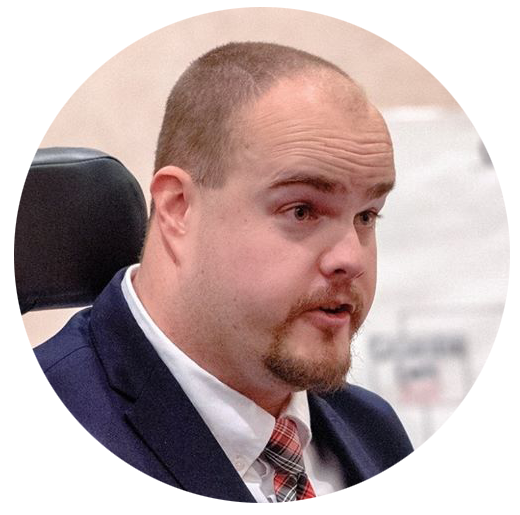
Image adapted from Wikicommons by DhLeaks44 / CC BY-SA 4.0
“The End of Conviction and Possible Beginnings for Criminal Law and Religion”
Matthew P. Cavedon
Conviction began just about a year ago and is now coming to an end. The premise for this series was that the intersection of criminal law and religion is an interesting, crowded place. Historically, religion had, and continues to have, a major role in determining how societies balance accountability and leniency. Criminal law and religion share and contest much philosophical turf. Religion affects what happens in criminal courts in surprising ways. And of course, religious people wind up in criminal proceedings for various reasons.
It has been a joy to spend the last year considering these topics. It is also apparent just how much digging this field can still sustain. The past year’s essays have not covered major investigations into international religious groups. Nor raging disputes in Michigan concerning Islamic and other approaches to marijuana legalization. I never got around to writing a Buddhist analysis of Rashomon, which could have opened onto a whole mini–series on criminal law and religion in film. Another unexplored direction is, frankly, eastward. While Hinduism made a few appearances in Conviction’s pieces, the focus here has mainly been on Abrahamic and emerging Western religions.
Precisely because criminal justice is such a deep inquiry into human souls and social purposes, it cannot help but be influenced by even more essential theories about life.
All of which makes it a shame that this series is coming to an end. At least for now. At least with me at the helm. I will be starting a judicial clerkship in August and am ceasing publication. The best service I can think to give in this closing contribution is to sketch out what could be a more comprehensive program studying criminal law and religion. Without further ado, here are some questions that the past year’s writing has raised in my mind:
How has the evolving position of religion in society affected religious approaches to criminal law? Christianity and Islam, and to a lesser degree Judaism, long wielded criminal weapons. Heresy was censored. Religious dissenters were imprisoned or executed. Some religious figures questioned these practices from the margins. In time, especially (but not exclusively) in the West, religious matters receded from the criminal realm. Now, many religious organizations are leading advocates for abolishing the harsher aspects of criminal justice entirely. How did, say, the Catholic Church become a major force against capital punishment when the Papal States were still using the practice well into the 1800s? This intellectual and sociological history is worth telling. Not least because it could predict how further changes in religion’s status – in the West, the Islamic world, or beyond – might lead to new developments in criminal justice.

What perspectives do Dharmic religions offer on criminal justice? Western notions of forgiveness, retribution, judgment, and mercy are informed by theologies, even as these societies become more secular. But there is also an entirely different world cosmology shaped by beliefs in karma and the underlying unity of all reality. Religions of this flavor have surely had a significant part in shaping numerous criminal justice systems. Just as surely, in our globalized world, they will also affect Western ones. But how? I am sure there are scholars out there researching this. I simply confess to not being familiar with them in the way Canopy Forum deserves.
How does religion affect criminality? This is no call for ranking religions in terms of how socially adjusted they are. Rather, it is a recognition that religion affects how people interact with each other and their government. What conduct do they find acceptable? How do they respond to slights, and injustices? Whose word commands their obedience? Religion, or lack thereof, is a key ingredient in considerations like this. The psychology of religion has much to add to criminology for this reason.
Where do religion and criminal law meet in the broader world of culture? My proposed movie fest is just one possible avenue for looking at how religion informs, and is informed by, cultural projects wrestling with the weightier questions of crime, truth-seeking, and punishment. Long before police and attorneys get involved, people go to bed thinking about these things. It is worth looking for the ways that the meeting of criminal law and religion in cultural settings affects citizens, lawmakers, judges, and jurors.
But possibly the most important question my mind poses, and the hardest to pin down, is this: What does religion do to contextualize criminal justice in its entirety? The process of defining, investigating, adjudicating, and punishing public wrongs – which I take to be criminal justice – is a quintessential social task. Due to its overarching importance in structuring life together, the impact wrongs have on victims, and the consequences for those convicted, it sometimes seems like an end unto itself. With so much heft already packed into it, how could there be room for any more considerations?
Lurking behind every debate about what to prohibit and compel, and how, are wonders that an overly secular society may have forgotten how to ask. Or even to ask at all.
But we know better. Precisely because criminal justice is such a deep inquiry into human souls and social purposes, it cannot help but be influenced by even more essential theories about life. What is good? What aims do we have for the societies in which we live? What are people’s duties toward each other, and themselves? What legitimate claims do they have on others, including for freedom to go their own way? What happens to the injustices that make it through the best gauntlets we can construct?
These questions cannot be answered by science. They are not subject to empirical proofs, or discoverable by clever Big Tech algorithms. They are the most transcendent of each of our lives. And the most intimate.
Put another way, they are theological. Lurking behind every debate about what to prohibit and compel, and how, are wonders that an overly secular society may have forgotten how to ask. Or even to ask at all. More robust meditation, and more thorough scholarship, than this little blog has so far managed might at least turn up some places to start.
So let’s pick this conversation back up again a little further down the road. There’s plenty more to see. ♦

Matthew P. Cavedon is a criminal defense attorney in Gainesville, GA. He graduated from Emory University in 2015 with a law degree and masters of theological studies
Recommended Citation
Cavedon, Matthew P. “The End of Conviction and Possible Beginnings for Criminal Law and Religion.” Canopy Forum, April 26, 2021. https://canopyforum.org/2021/04/26/the-end-of-conviction-and-possible-beginnings-for-criminal-law-and-religion/

